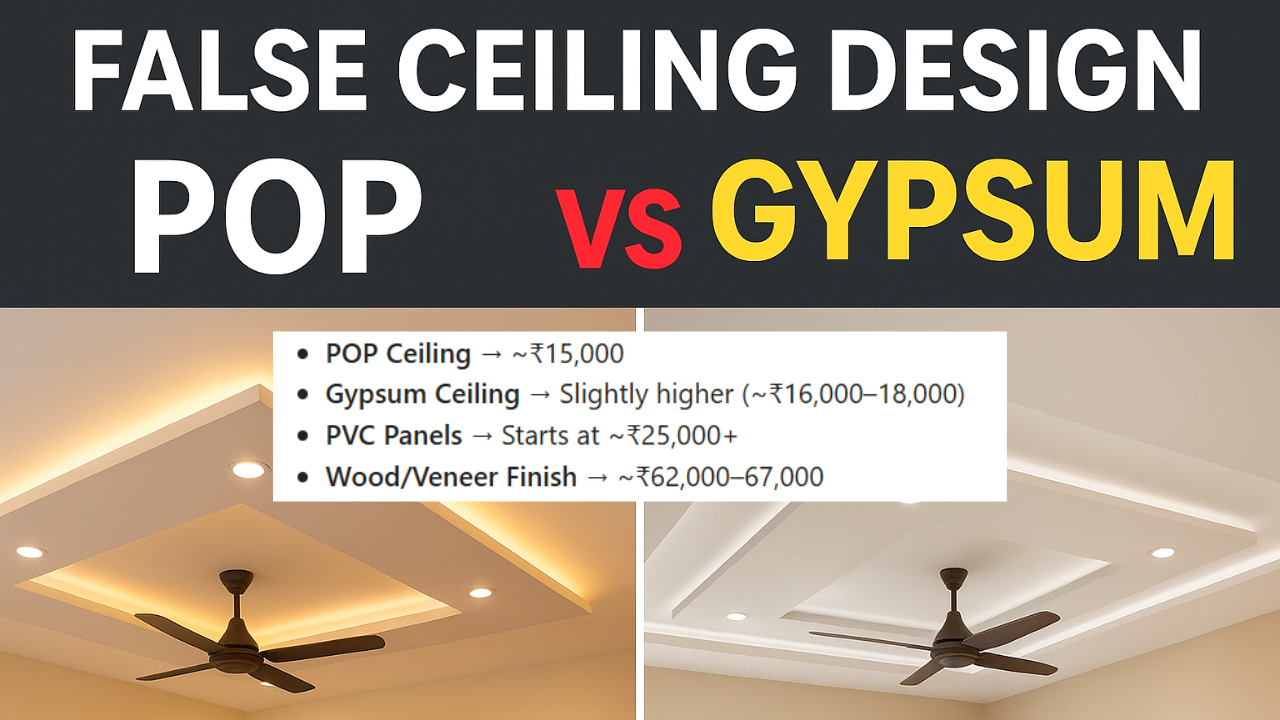POP vs Gypsum & Other Materials Per Sq.ft Cost: False Ceiling Design. When planning your dream home interiors, the ceiling often gets overlooked.
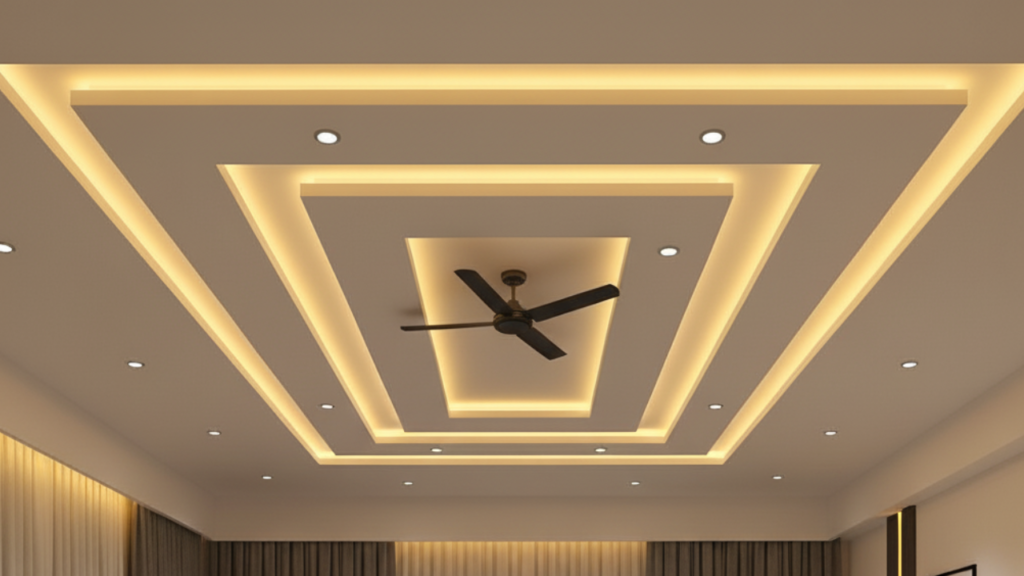
Yet, false ceiling design not only enhances aesthetics but also solves practical issues like lighting, insulation, and alignment. This guide (based on Ekta’s video insights) breaks down the purpose, material choices, mistakes to avoid, and cost estimations for false ceilings.
Why Do You Need a False Ceiling?
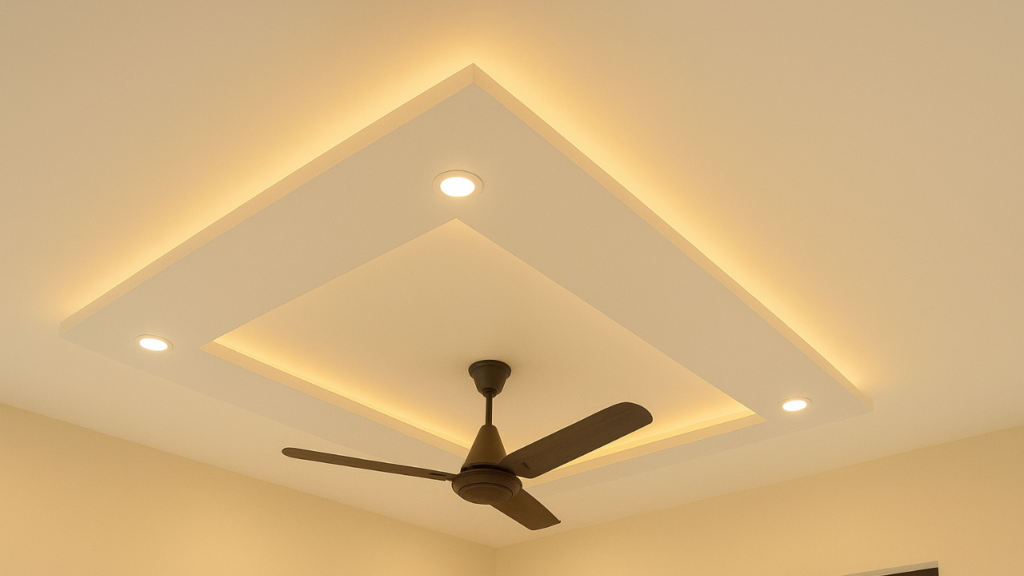
POP vs Gypsum False ceilings are not just decorative. They serve multiple functions:
- Design Correction – Example: A fan may not align with the bed center, making it look off. False ceilings allow designers to correct such alignment issues.
- Aesthetic Appeal – Enhances ambience across rooms (living, bedroom, kitchen, bathroom) according to the theme.
- Lighting – Conceals wiring and allows installation of profile lights, magnetic track lights, and panel lights.
- Insulation & Soundproofing – Adds thermal and sound insulation, especially useful for top floors.
Popular False Ceiling Materials
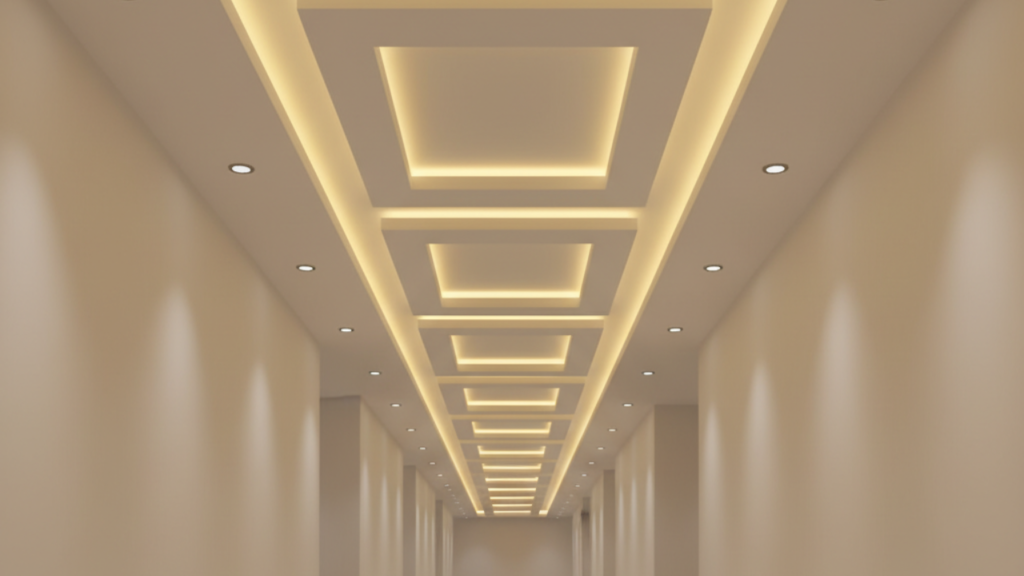
Here’s a comparison of major POP vs Gypsum false ceiling materials, their features, and pricing (approximate).
| Material | Key Features | Pros | Cons | Approx. Cost (₹/sq.ft) |
|---|---|---|---|---|
| POP (Plaster of Paris) | Traditional, allows carvings and curved designs | Good for custom shapes | Dusty installation, cracks with time | ~60 |
| Gypsum Board | Mounted on channels, smooth finish, widely preferred | Clean look, easy to install | Slightly costlier than POP | ~70–80 |
| PVC Panels | Ready-made, available in wood looks, fire & moisture resistant | Durable, easy maintenance | Limited design flexibility | ~100+ |
| Wood / Veneer | Premium finish with plywood & veneer combinations | Rich, natural aesthetics | Expensive, requires care | ~280–300 |
| MDF with CNC Cuts | Decorative, often used for mandirs or highlight areas | Intricate design possibilities | Too loud for bedrooms/living | Varies |
| Stretch Ceiling | Printed or plain stretch film (clouds, night sky designs) | Stunning, modern visuals | Can look tacky if overused | Custom pricing |
| Metal Panels | Used in common areas, utility spaces, bathrooms | Functional, hides services | Not suitable for main rooms | Varies |
Common Mistakes to Avoid
- Too Much Depth – Keep the false ceiling 4–6 inches below the slab, not deeper.
- Driver Placement – Place LED drivers near panels so they can be replaced without breaking the ceiling.
- Height Reduction – Plan carefully if you already have low ceilings.
- Overly Complex Designs – In India, dust settles quickly; choose simple, easy-to-clean designs.
- Floor Protection – Always cover floors during installation to avoid permanent damage.
Costing Examples
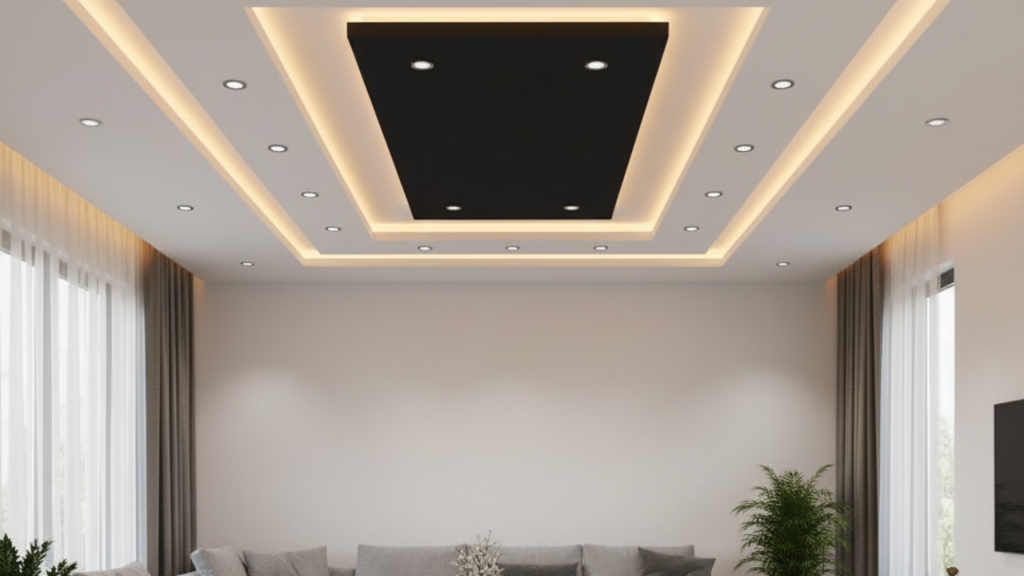
POP vs Gypsum Let’s estimate costs for a 14 ft × 16 ft living room (224 sq ft):
- POP Ceiling → ~₹15,000
- Gypsum Ceiling → Slightly higher (~₹16,000–18,000)
- PVC Panels → Starts at ~₹25,000+
- Wood/Veneer Finish → ~₹62,000–67,000
Note: Costs vary by city, availability of skilled labor, and material quality.
Final Thoughts
POP vs Gypsum False ceilings are more than cosmetic—they balance functionality, aesthetics, and comfort. Choose materials based on budget, design preference, and room usage.
If you’re planning one:
- Go with Gypsum for a balanced, modern finish.
- Choose POP if you want detailed shapes at a budget.
- Opt for PVC/Wood if durability and premium look are priorities.

